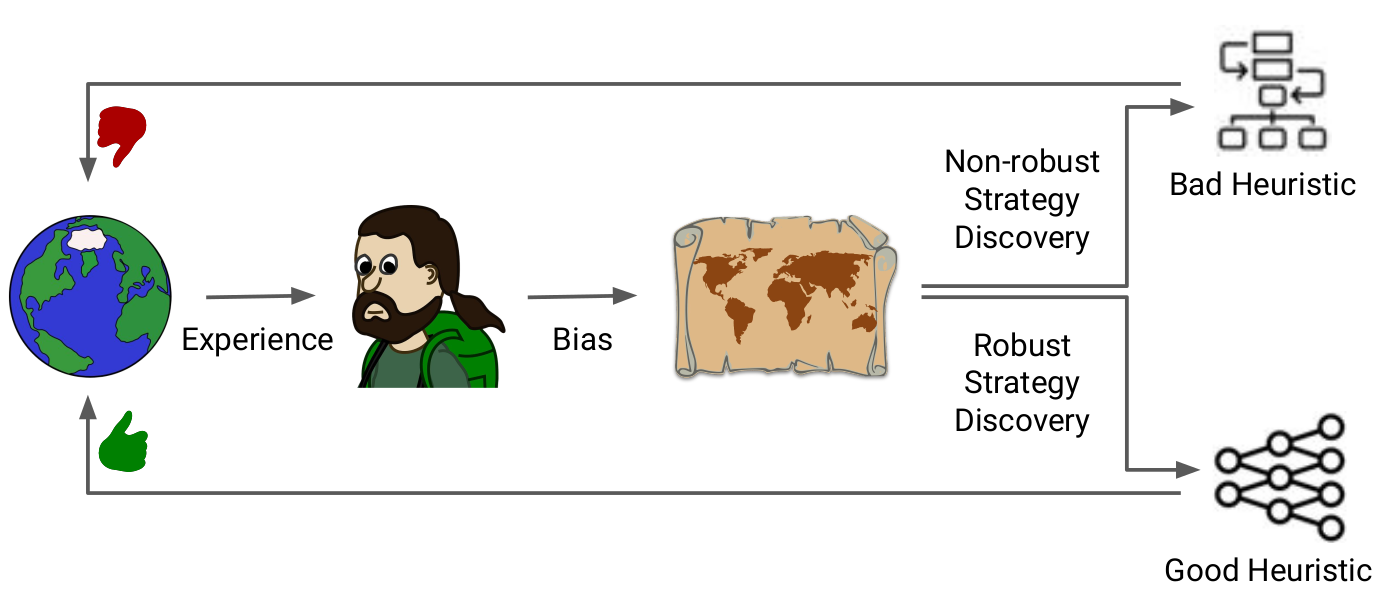
To make good decisions in a limited time, people need clever heuristics that exploit the structure of the environment. Given a perfect model of the environment, optimal heuristics can be discovered automatically using the principle of resource-rationality. However, when discovering strategies for real-world problems, we have to depend on people to provide us with a description of the environment. Since people are known to be fallible to cognitive biases, the perfect model assumption may not hold true.
In this project, we, therefore, aim to answer the following question:
How can we discover clever heuristics from biased descriptions of the environment?
As a first step to that end, we formed models of cognitive biases and used Bayesian Inference to obtain candidate true environments (Kemtur et al. 2020). We then sought to discover strategies that work well in expectation over these candidates. Experimental studies show that our robust cognitive tutor significantly improved human decision-making when the model was so biased that conventional cognitive tutors were no longer effective. Motivated by these results we now seek to scale up our methods and apply them to more real-world scenarios.
